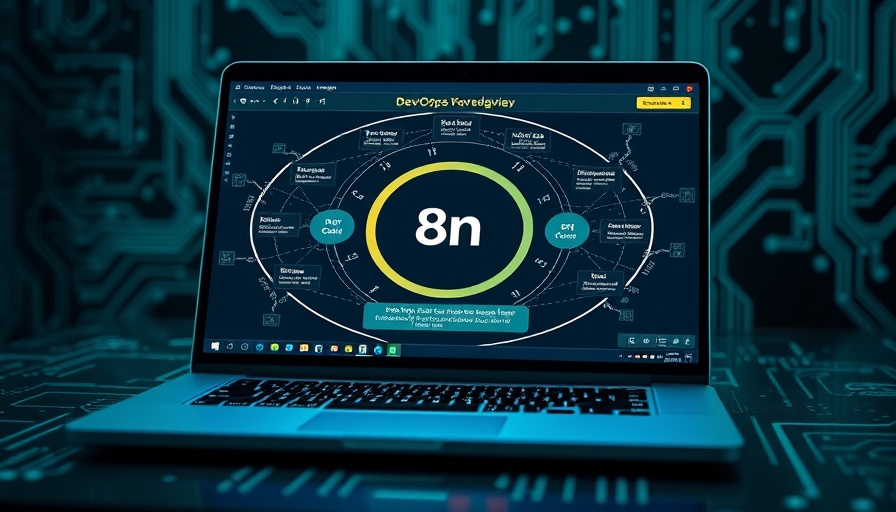
Understanding DevOps: The Foundation of Modern Software Development
DevOps is more than just a buzzword; it's a cultural movement aimed at fostering collaboration between software developers and IT operations. This approach prioritizes continuous integration and delivery, automation, and agile methodologies to accelerate product rollouts and enhance service reliability. For small and medium-sized businesses (SMBs), embracing DevOps can be the key to staying competitive in a rapidly-evolving digital landscape.
What Is n8n and How Does It Work?
On the other hand, n8n offers a unique solution for workflow automation, aiming to simplify complex processes for non-developers and smaller teams. Unlike traditional DevOps tools that often require extensive coding knowledge, n8n is designed to be user-friendly. Its visual interface allows users to create workflows by connecting different applications and automating tasks with minimal technical expertise, making it an attractive option for SMBs looking to increase efficiency without a hefty investment in resources.
Can n8n Replace DevOps? A Closer Look
One pressing question many businesses are asking is whether tools like n8n can entirely replace DevOps practices. The answer is nuanced. While n8n can significantly streamline workflows and improve automation at a basic level, it fundamentally cannot fully replace the essence of DevOps due to several factors:
- Scope of Automation: n8n excels at automating individual tasks and workflows, but DevOps encompasses a broader scope including infrastructure management, performance monitoring, and security best practices.
- Infrastructure vs Workflows: DevOps tools like Jenkins and Kubernetes are tailored for managing infrastructural complexities that support production environments, whereas n8n focuses primarily on high-level workflow automation.
- Skill & Culture vs Tool: DevOps is built on a cultural foundation emphasizing collaboration, continuous learning, and proactive problem-solving. In contrast, n8n is a tool that serves as an assistant rather than a transformation of company culture or operational processes.
Real-World Perspectives: Use Cases of n8n and DevOps
Despite these distinctions, it's essential to consider how n8n can complement DevOps rather than compete with it. For instance, integrating n8n into a DevOps pipeline can automate routine tasks like data transfers between applications or notifications for build statuses, allowing developers to focus on higher-value activities.
Moreover, organizations can capitalize on n8n’s strength by using it for simple, repetitive tasks that would otherwise consume valuable time and resources in a DevOps environment. Ultimately, the combination of both approaches can lead to a more streamlined operation, maximizing the potential of both tools.
The Future of Work: Trends and Predictions
The future of work is undoubtedly leaning towards automation and intelligent task management. As businesses look to optimize their operations, understanding how tools like n8n fit into the broader landscape of DevOps will be crucial. Companies that leverage both together can expect smoother operations and faster innovation cycles.
Actionable Insights for Small and Medium-Sized Businesses
For SMBs considering these tools, here are some actionable insights:
- Evaluate Your Needs: Assess your workflow requirements and identify areas where automation can save time and resources.
- Implement in Phases: Start using n8n for smaller tasks before integrating it into your larger DevOps strategy.
- Train Your Team: Invest in training for your employees to harness the full potential of both n8n and DevOps practices.
Conclusion: Finding the Balance in Automation
In summary, while can n8n cannot replace DevOps entirely, it serves as a valuable asset for SMBs seeking to improve automation capabilities. A balanced approach, integrating both n8n for workflow automation with traditional DevOps practices, will not only enhance productivity but also foster a culture of continuous improvement. As businesses move forward navigating the complexities of modern software development, those who adapt will undoubtedly thrive.
 Add Row
Add Row  Add
Add 



Write A Comment